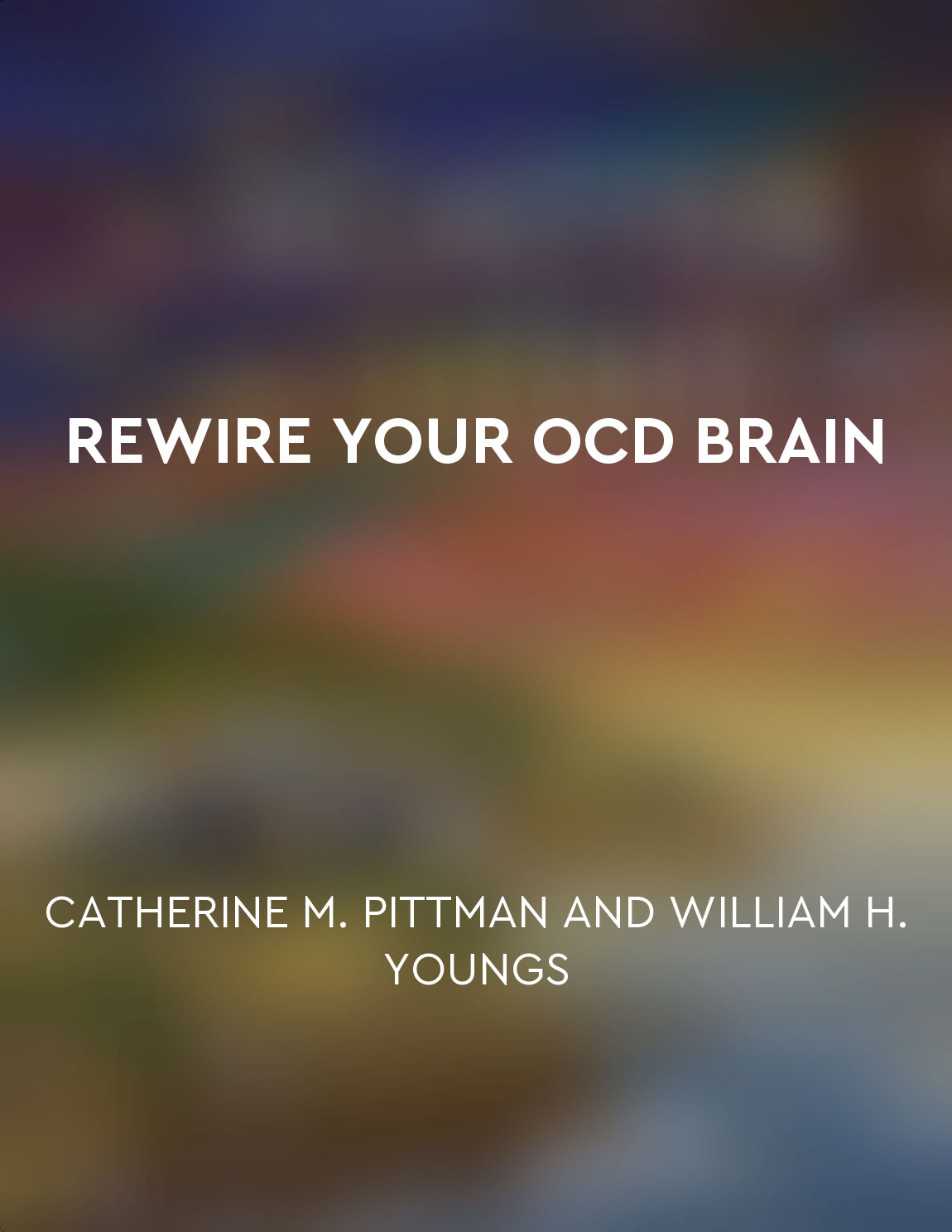Audio available in app
Set realistic goals for treatment and recovery from "summary" of REWIRE YOUR OCD BRAIN by CATHERINE M. PITTMAN AND WILLIAM H. YOUNGS
Setting realistic goals for treatment and recovery is crucial when dealing with OCD. It is important to remember that recovery is a process that takes time and effort. Setting unrealistic goals can lead to frustration and disappointment, which can hinder progress. By setting achievable goals, you can maintain motivation and track your progress effectively. When setting goals, it is essential to be specific and measurable. Vague goals such as "getting better" are not helpful as they are difficult to track and quantify. Instead, focus on specific behaviors or symptoms that you want to work on, such as reducing the frequency of compulsions or improving coping strategies. It is also important to break down larger goals into smaller, more manageable steps. This can help prevent feeling overwhelmed and make progress feel more attainable. By taking small steps towards your goals, you can build momentum and stay motivated throughout the recovery process. Additionally, it is important to be flexible with your goals. Recovery is not a linear process, and setbacks are a natural part of the journey. By being open to adjusting your goals as needed, you can adapt to challenges and continue moving forward. Remember, progress is not always smooth, but it is still progress. Lastly, it is important to celebrate your achievements, no matter how small they may seem. Recognizing and acknowledging your progress can boost your confidence and motivation to continue working towards your goals. By setting realistic goals, breaking them down into manageable steps, being flexible, and celebrating your achievements, you can set yourself up for success in your journey towards recovery from OCD.Similar Posts

Embrace the power of cognitive therapy
Cognitive therapy is a powerful tool that can help you change the way you think and feel. It's based on the idea that our thoug...

Live authentically and in alignment with your values and beliefs
Living authentically and in alignment with your values and beliefs is a powerful concept that can have a profound impact on you...
Mindful movement, like yoga, can reduce anxiety symptoms
Incorporating mindful movement, such as yoga, into your daily routine can have a significant impact on reducing symptoms of anx...
Let go of past hurts
When you hold onto past hurts, you are essentially giving those experiences power over your present and future. By holding onto...
Challenging irrational beliefs can lead to positive outcomes
In cognitive-behavioral therapy, the idea that challenging irrational beliefs can lead to positive outcomes is a fundamental pr...

Accept that setbacks are part of the process
Setbacks are inevitable on the path to overcoming anxiety. They are a natural part of the process, and accepting them allows yo...
Memory techniques
Memory techniques are tools that can help us remember information more effectively. They provide us with strategies to encode, ...
Make it easy to start good habits and hard to continue bad ones
To build a good habit, you need to change the task so that it is easier to start. For example, if you want to read more books, ...

Embrace uncertainty as an opportunity for growth
Embracing uncertainty is a fundamental part of life. It is inevitable that we will encounter situations where we do not have al...

Continuously learn and grow
The key to success is to continuously learn and grow. You can't rely on traditional paths like going to school or working for a...

